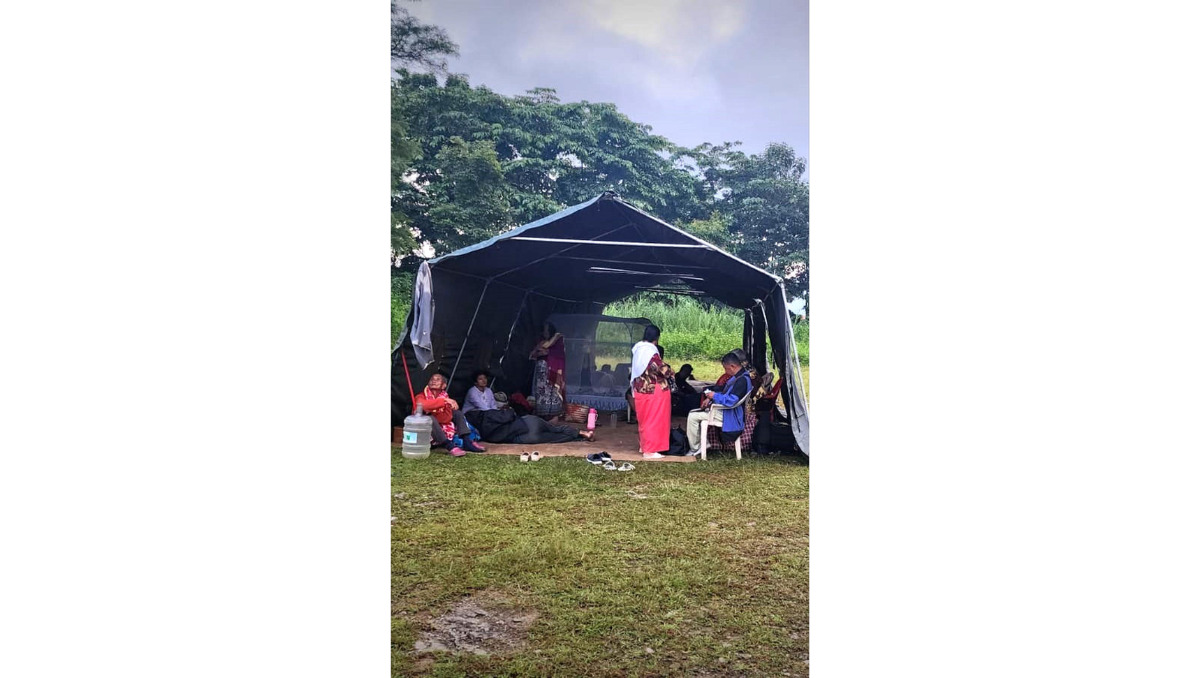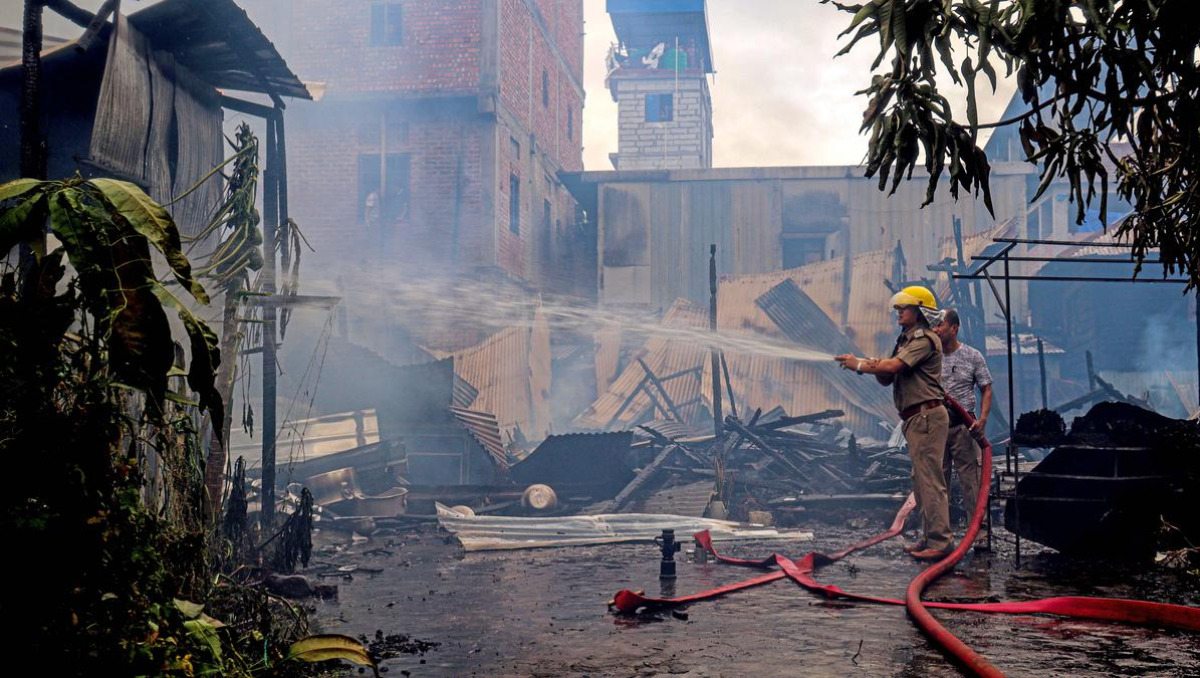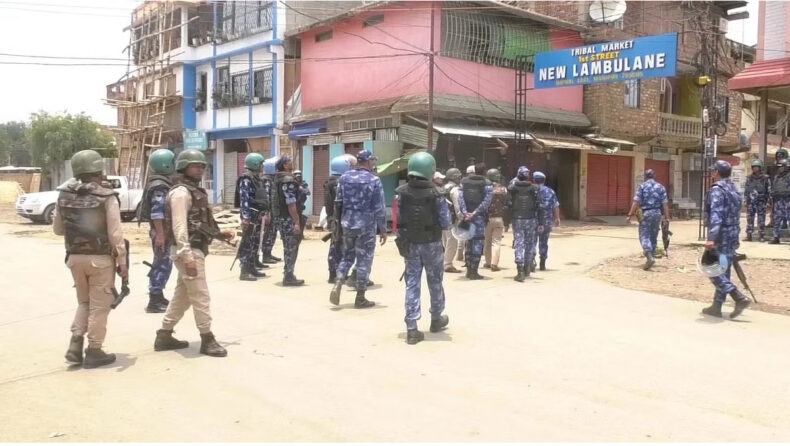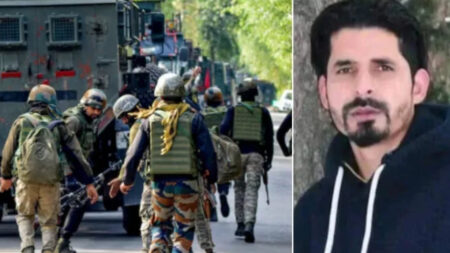24 members of the Kuki-Zo tribe were allegedly forced out of their homes in central Imphal by security forces on Saturday.
Table of Contents
Government cites “safety concerns”
According to government sources, Kuki residents of the New Lambulane area at the core of Manipur‘s capital were provided “safe passage” to an Assam Rifles camp in the hilly region of Motbung, Senapati district, after having received inputs of “immediate danger” on the tribal people.
An area which once housed nearly 300 Kuki families had seen that number trickle down in the wake of ethnic violence beginning on May 3 between the Kuki and Meitei communities that has already claimed at least 165 lives, leaving Manipur in a state of great instability. While Kuki people took off to the remote, mountainous parts outside Meitei-dominated Imphal, Meitei people fled from the tribal-dominated hilly regions into Imphal Valley.
Despite a substantial threat over their lives, some five Kuki families dug their heels in and refused to leave New Lambulane, a locality just a few kilometres apart from the residence of N. Biren Singh, Manipur’s Chief Minister, and the headquarters of Manipur Police.
The locality had been under considerable vigilance provided by central security forces and the Indian Army, but eventually, according to sources, Kuki people had become “vulnerable targets” as a result of staying in Imphal for a long period, thus requiring an exit from New Lambulane.
Kukis cry foul, “herded into vehicles”
The twenty four, who called themselves the “last remaining residents of the last remaining Kuki locality in Imphal” in a press statement released on Saturday, claimed that their exit was a forceful “eviction” by a team of “uniformed armed personnel claiming to be from the home department”.
When the Wire asked the evacuees whether they asked the officials to furnish the order from the home ministry, most replied that they had not out of fear. The tribal people said that they were given less than an hour to gather any belongings and then make their way into vehicles without asking any questions.
Hejang Kipgen, one of the Kuki members taken out of New Lambulane asserted that the twenty four of them were “literally herded into waiting Casper bulletproof vehicles”. He also claimed that the Kuki people were woken up from their sleep and physically forced out of their homes into the waiting vehicles, wearing only the clothes they were sleeping in.

Likening the “forcible evacuation” to an abduction, the twenty four expressed their strong displeasure in the press statement, castigating the country for not ensuring their safety at their place of residence, instead “succumbing” to external pressure provided by the “chaotic forces trying to destroy the society and the State”.
Reverend S. Prim Vaiphei, a 78-year old clergyman and another resident of New Lambulane since 1990 was unwilling to vacate his house even when the violence was at it’s peak, he said. There were objections from all sides, as he said that the Meitei didn’t like his family’s presence, while the Kukis also wanted him to leave the area.
Repeated requests of similar nature from the security forces patrolling New Lambulane around the clock were also ignored, until late Friday, when they arrived at the door and asked the family to immediately leave the house. Such was the urgency, he couldn’t even take an extra pair of clothes, toothpaste, sweater or a jacket, before getting directed into an Army vehicle and taken to Motbung, where he spent the night on a cold floor under a tent.
Since the start of the ethnic clashes on May 3, the family had been locked inside their homes, with all five entrances to the locality guarded by Central security forces. Sandwiched between a Muslim locality on the northern side and a Meitei one on the southern, they never moved too far into other parts of the city, with their supplies making their way from the Muslim side, according to Vaiphei.
Mang, another one of those displaced, was distressed over the “failure of the Indian government”, questioning that despite being Indian citizens, they weren’t afforded protection to live in their own houses. Not being able to take some money before getting hurried away to Motbung, Mang added that the evacuated don’t know how to function in the coming days. Talking to the Wire, Mang expressed their fear over their abandoned house getting burnt, with their passport and Aadhaar still in there.
Manipur in pieces
Mang’s fears were not out of place, as on August 27, a house vacated by a Kuki family was lit on fire by an alleged “miscreant”, with the flames also engulfing two Meitei homes. The resulting protest from the locals was broken up with tear gas shells fired at the riled-up crowd.

The arson on August 27 was just another example of a string of violence and volatility that has gripped Manipur since May 3. The northeastern state has been facing wave after wave of deadly clashes between the Kuki-Zo and Meitei communities since May 3, with rampant sexual and physical violence claiming lives and leaving nearly 50,000 people internally displaced.













